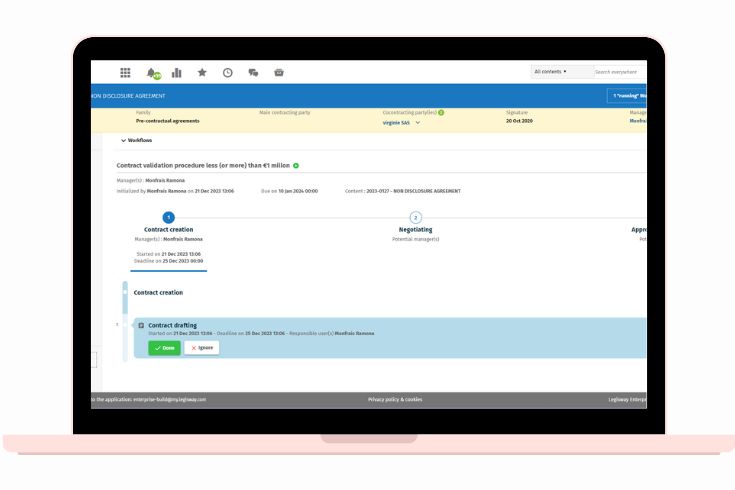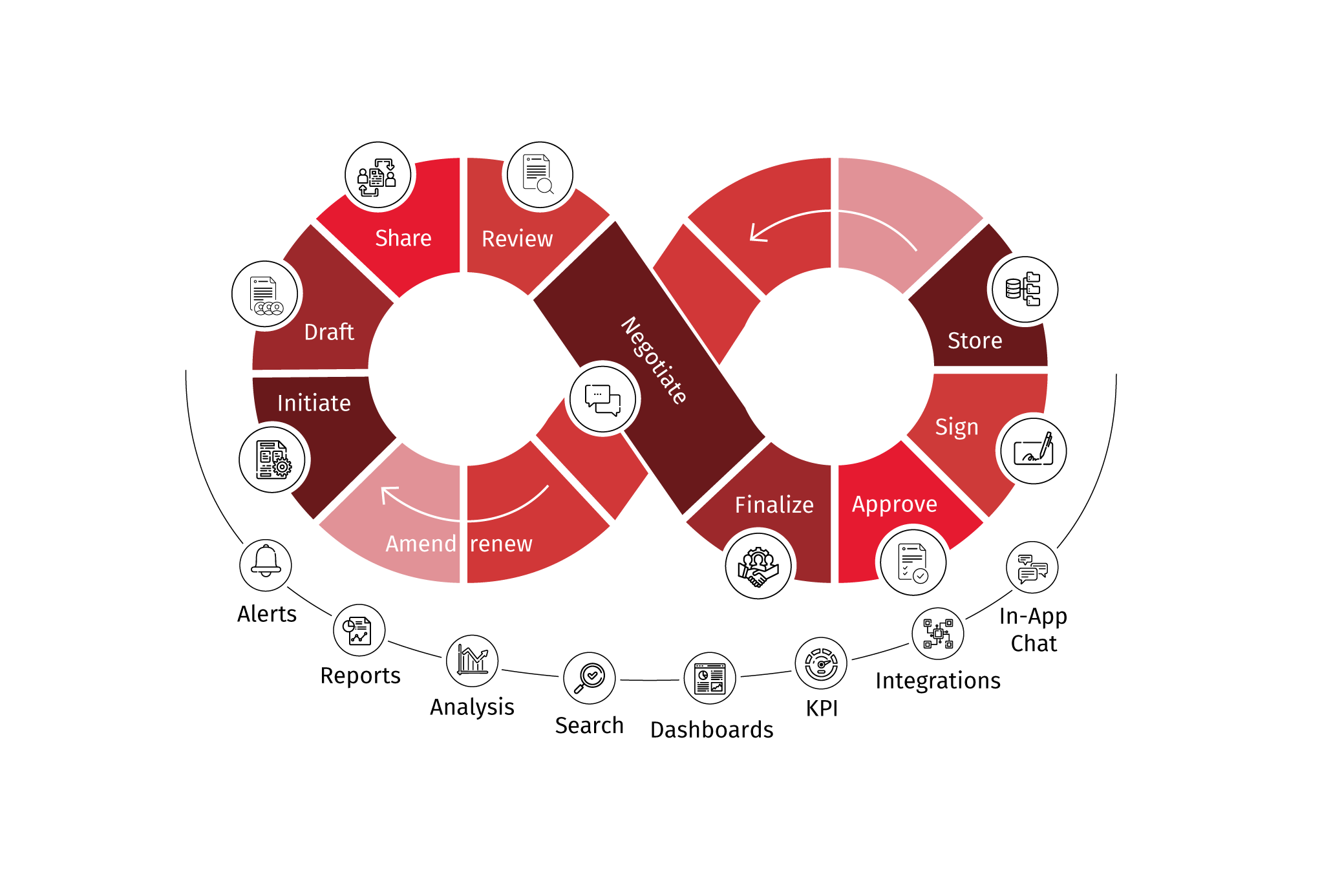For in-house legal teams, the contract management lifecycle is a critical structured approach that governs contracts from start to completion. Effectively managing each stage is essential for organizations to ensure compliance, reduce risks, and foster strong relationships with clients, suppliers, and partners.
Given the American Bar Association's (ABA) finding that 60% of corporate lawsuits are contract-related(1), it is crucial for legal departments to prioritise an efficient and comprehensive contract management process to mitigate legal risks and potential disputes.
The contract management lifecycle is a vital process that eases the smooth administration and execution of contracts, playing a significant role in supporting successful business relationships.
In this article, you can dive deep into the 6 key steps of the contract management lifecycle and learn how to enhance this critical process within your business.
The 6 steps of contract management lifecycle
Stage 1: Contract Initiation
In the first stage, in-house counsel identifies the need for a contract and outlines the goals and expectations of the involved parties.
Essential tasks during this stage include:
- Needs Assessment: Recognizing the requirement for a contract and setting up the goals it aims to accomplish.
- Party Identification: Finding the contractual parties.
- Terms and Conditions: Designing the preliminary terms and conditions that will preside over the contract.

Stage 2: Contract Creation and Negotiation
Upon the initiation of the contract, it continues to the formulation and negotiation phase.
This stage encompasses the drafting, reviewing, and negotiation of contract terms, ensuring alignment with the interests of all participating parties.
Noteworthy tasks during this stage involve:
- Drafting: producing the first contract document encompassing all terms and conditions.
- Review and Redlining: all parties involved examine the contract and suggest alterations or amendments.
- Negotiation: engaging in dialogues to arrive at a consensus that is mutually beneficial.
Stage 3: Contract Approval
Upon reaching an agreement on the contract terms, the process advances to the approval phase.
This entails acquiring the required approvals and endorsements from all participating parties.
Pivotal tasks during this stage consist of:
- Legal Review: confirming the contract's compliance with pertinent laws and regulations.
- Stakeholder Approval: securing approval from relevant stakeholders within the organization.
- Signatures: formalizing the contract through the acquisition of signatures from authorized representatives.
Stage 4: Contract Execution
Once all necessary approvals and signatures have been secured, the contract is set for implementation.
This phase involves implementing the agreed-upon terms, covering aspects like delivering goods or services and meeting contractual obligations.
Stage 5: Contract Monitoring and Management
The contract management process extends beyond execution, encompassing ongoing monitoring and administration.
This critical stage consists of scrutinizing the contract's performance, safeguarding compliance, and promptly addressing any discrepancies or deviations.
Stage 6: Contract Renewal or Termination
Contracts have a limited duration, and this phase entails determining the proper course of action—whether to renew, modify, or conclude the agreement.
Moreover, this stage encompasses the potential renegotiation of terms, if needed.
Conclusion and takeaways
The contract management lifecycle is a structured process that helps organisations navigate the complexities of contracts effectively. Each stage plays a crucial role in ensuring that contracts are created, executed, and managed efficiently. By understanding and optimising these stages, you can minimise risks, maximise benefits, and contribute to building strong, enduring relationships with all parties involved.
To improve your contract management process and master each stage, consider adopting a contract management software tailored to your organization’s needs, such as Legisway. Discover more: https://www.wolterskluwer.com/en-gb/solutions/legisway.
(1) Source: American Bar Association, "The Value of Corporate Legal Departments" study





